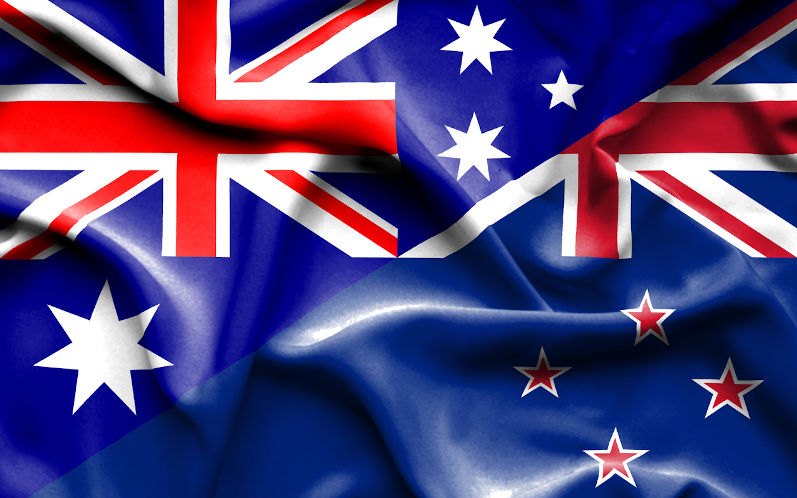501 reasons why deportations damage Australia in the Pacific
May 29, 2022
The new Australian government wants to push back against Chinese military expansion in the Pacific. It needs the support of the Pacific Islanders themselves. That also means getting rid of a deportation policy with overtones that are, for want of another term, racist.
I am referring to the 501 deportations from Australia. Anyone who is a New Zealand citizen, and who commits a crime in Australia, can be (and often is) deported to New Zealand. They are called 501s because the amended section 501 of the Migration Act gives the Minister discretion to deport someone who fails a character test due to having a criminal record.
It does not matter if they have not lived in New Zealand since they were a child. Many have not. One did not even know he was a New Zealand citizen.
It does not matter if they have no support networks in New Zealand. Many do not. So, one reason why New Zealand does not like this policy is that some people who are deported quickly find their way into criminal networks.
That is no surprise. One of the major predictors of criminal recidivism is the absence of community support networks.
The policy has racist overtones, not least because many of the deportees are Maori and some are Pasifika. Other nationalities are deported as well, but New Zealanders are by far the most common. For every Australian deported from New Zealand, there are roughly 100 kiwis deported from Australia.
Some have never set foot in New Zealand before, but gained New Zealand citizenship by virtue of special arrangements that New Zealand has, granting some Pacific Islanders automatic New Zealand citizenship.
So you can see why it is not just New Zealanders who object to this policy. It is viewed with widespread disdain through the South Pacific. Stories get repeated in Tonga, Nauru, Vanuatu they even make it into the Chinese language newspapers in New Zealand.
They may be an almost unknown issue in Australia, but this was the lead item on the news in New Zealand yet again when a woman awaiting deportation as a 501 in the Villawood detention centre took her own life last week. She had been held there for six months, her access to mental health medication was reportedly restricted, and guards raided her cell just hours before she ended her life to confiscate a stray cat she had adopted and cared for.
There is even a documentary on Maori TV (you can watch it here) that tracks the experiences of several 501s promoted with the line: When coming home is theharshest part ofthesentence.
Certainly, the most obvious factors behind Australias crumbling status in the Pacific are the previous governments climate change policy, its mocking of Pacific Island concerns on this issue, and issues with overseas aid. Behind this, the 501 deportation policy is a big part of Australias underlying image problem. It is not just an injury to the individuals concerned, it is an insult to the communities from which they come.
Labor aims to address most of the overt policy problems and to repair the damage created to Australias image by reversing the near-abandonment of Australian broadcasting into the Pacific. Yet as the Australian Strategic Policy Institutes Graeme Dobell says, we need to talk with and not to our Pacific neighbours. The 501 deportations are a classic way to undermine genuine conversations in which we talk with each other, and they cannot be ignored if the aim is to restore Australias place as first partner of choice for our Pacific family.
Moreover, if Australia also aims, as it appears, to appeal to Pacific Island peoples by offering new permanent migration opportunities, such appeals will seem empty if the 501 threat remains.
So this is not just an issue for Australias relationship with New Zealand. The Pacific Island states are a lot closer philosophically, politically, demographically, geographically and emotionally to New Zealand than to Australia. There is a huge Pacific Islander community in New Zealand. Pasifika peoples concerns feature in policy debates in New Zealand in a way never seen in Australia. When Hunga TongaHunga Ha’apai erupted in January it was the major concern in New Zealand and the people of Tonga looked to New Zealand for help. Australia sent aid (on a ship with COVID-19) but it was the lesser player despite being five times New Zealands size.
Just about all the Pacific Island states pay a lot more attention to, and have a lot closer links with, New Zealand than Australia. Australia cannot assume that New Zealand will just fall in behind it on issues concerning the relative positions of superpowers in the region. The NZ dropped out of ANZUS in the 1980s when nuclear ships were banned, and it has never sought to return.
Australia cannot fix relations with the Pacific if it does not fix them with New Zealand. And that is before taking account of the fact that the 501 policy has a direct, visible, impact on Pacific Islanders themselves.
At a time when Labor is trying to rebuild Australia’s credentials in the Pacific, in light of the Honiara debacle, it seems that resolving the 501 problem is a critical aspect of reviving Australia’s reputation in the Pacific.

